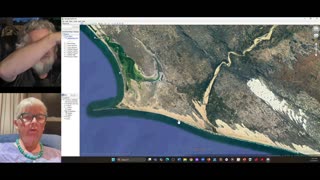Premium Only Content

Rupert Sheldrake - The Nature of Energy: Sheldrake-Vernon Dialogue 85
Rupert Sheldrake
Mar 1, 2024
The Nature of Energy: Sheldrake-Vernon Dialogue 85
https://www.youtube.com/watch?v=rp3QRl23clI
Energy is a key organising principle in modern science, the conversation of energy being a grounding and universal law. But what is energy? In this episode of the Sheldrake-Vernon Dialogues, Rupert Sheldrake and Mark Vernon examine the history of the idea and the word. In science, energy is a relatively recently notion, emerging in its current form in the 19th century, drawing much on mechanics. The word itself was coined by Aristotle, in the 4th century BCE, carrying a sense of vital actuality and living presence. That meaning is still remembered in Orthodox theology, which describes the energeia of God. The conversation ranges over the promiscuity of energy in the natural world to the spiritual notion of energy, including the subtle energies of the body. The implications of shaping the idea of energy through mechanical metaphors also has important ramifications, from the descriptions of economics and the efficacy of psychology to the experience of God. Further, the most recent physics argues that energy is not conserved after all as the universe expands.
------
Dr Mark Vernon is a psychotherapist and writer with a rich academic background in physics, theology, and philosophy. He contributes to programmes on the radio, writes and reviews for newspapers and magazines, gives talks and podcasts. His books have covered themes including friendship and God, ancient Greek philosophy and wellbeing. His new book, out August 2019, is "A Secret History of Christianity: Jesus, the Last Inkling and the Evolution of Consciousness". He has a PhD in ancient Greek philosophy, and other degrees in physics and in theology, and works as a psychotherapist in private practice. He used to be an Anglican priest.
Mark's latest book is...
A Secret History of Christianity: Jesus, the Last Inkling, and the Evolution of Consciousness
http://www.markvernon.com/books/a-sec...
------
Dr Rupert Sheldrake, PhD, is a biologist and author best known for his hypothesis of morphic resonance. At Cambridge University, as a Fellow of Clare College, he was Director of Studies in biochemistry and cell biology. As the Rosenheim Research Fellow of the Royal Society, he carried out research on the development of plants and the ageing of cells, and together with Philip Rubery discovered the mechanism of polar auxin transport. In India, he was Principal Plant Physiologist at the International Crops Research Institute for the Semi-Arid Tropics, where he helped develop new cropping systems now widely used by farmers. He is the author of more than 100 papers in peer-reviewed journals and his research contributions have been widely recognized by the academic community, earning him a notable h-index for numerous citations. On ResearchGate his Research Interest Score puts him among the top 4% of scientists.
-
 0:37
0:37
Rolling With You
1 day agoil Donaldo Trumpo - STOP IT!!!🤣🤣🤣
8522 -
 30:57
30:57
Her Patriot Voice
13 hours ago $2.57 earnedDemocrats More Unhinged Than EVER Before!
22.5K65 -
 29:13
29:13
Clownfish TV
22 hours agoGen Z are Becoming the Boomers?! | Clownfish TV
2.61K27 -
 1:48:31
1:48:31
Squaring The Circle, A Randall Carlson Podcast
16 hours agoMEGA Tsunamis and the formation of our World ft. Dr. Dallas Abbot
5.5K4 -
 13:13
13:13
Mrgunsngear
14 hours ago $1.09 earnedStreamlight TLR-1 HP Review: Can It Dethrone Surefire?
4.57K4 -
 6:53
6:53
Rena Malik, M.D.
23 hours ago $0.29 earnedWhy Antidepressants Wreak Havoc on Your Sex Life?! | Urologist Explains How to Boost your Libido
4.53K4 -
 1:00:00
1:00:00
BEK TV
2 days agoMIKE MOTSCHENBACHER ON NORTH DAKOTA POLITICS, TEA PARTY ROOTS, AND THE 2026 ELECTION
5.68K -
 15:31
15:31
Breaking Points
1 day agoIs Trump Planning VENEZUELA Regime Change?
27.6K18 -
 2:06:05
2:06:05
"What Is Money?" Show
2 days agoTrump Family Bitcoin Bet Will Trigger Nation-State FOMO w/ Matt Prusak (CEO American Bitcoin)
9.34K -
 1:04:36
1:04:36
Dialogue works
3 days ago $3.66 earnedMohammad Marandi: Iran Just Gave Israel a FINAL Warning…
16.3K6